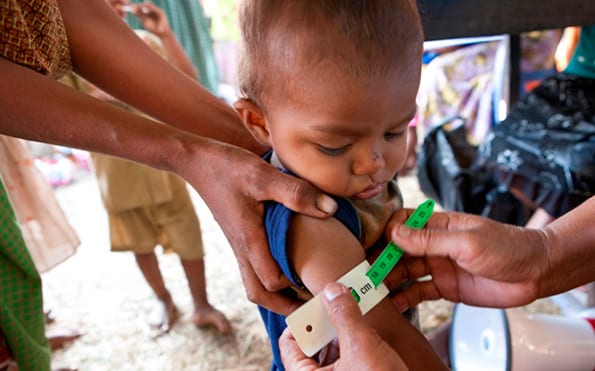Envision 2013: The Longevity Dividend
by S. Jay Olshansky on April 2, 2013 in Uncategorized
This year’s Envision topic is Stories of the Global Health Challenge. You can watch the livestream TODAY April 11th from 9:00am – 6:00pm at www.envisionfilm.org
Dr. S. Jay Olshansky will be speaking at Envision 2013 and joins our blog network to address the global issue and to shares a call to arms for filmmakers to join in on the global dialogue.
A paradigm shift in thinking about aging and disease is about to take place – it’s called The Longevity Dividend Initiative (LDI), and it will influence all of us. Much like President Kennedy’s moon declaration in the early 1960s and the widespread dissemination of antibiotics in the middle of the 20th century, the LDI will change the face of humanity in ways that can only be imagined today.The Longevity Dividend is a call to scientists to embark on new accelerated efforts to slow the biological aging of our species. Stories about this new health initiative will be told for centuries to come.
During the last 120 years, humanity added an average of 3 decades to the lives of people living in most developed countries. For many, the added years have been healthy, producing strong economic growth and a particularly valuable resource—an experienced, often underutilized older workforce—that could not have been imagined when population aging first began decades ago.
But all is not rosy. Humanity appears to have entered into a Faustian trade. Our extended lives have come with a heavy price—rapid increases in the prevalence of chronic, fatal, and disabling diseases, as well as a dramatic escalation in related health care costs.
Cancer, heart disease, stroke, Alzheimer’s disease, arthritis, the progressive loss of hearing and sight, and a large number of other maladies now common among older people are, in large measure, a product of the privilege of living long enough to experience them. Although no consolation to those who experience them, the disorders now commonly experienced at older ages should be thought of as products of success, not failure. Few would challenge that the trade-off of a much longer life has been worth the price of a rising tide of chronic diseases and their related costs. And yet, significant challenges lie ahead.
Here’s the dilemma. In today’s world of modern medicine we approach chronic degenerative diseases in much the same way infectious diseases were confronted more than a century ago: one at a time, as they arise. The underlying premise of this approach is that all diseases are treated as if they are independent of each other—having their own independent origin and etiology. Scientists now know that this assumption is false when it comes to the diseases common among older people; behavioral risk factors for chronic diseases such as smoking and obesity increase the risk of experiencing more than one adverse health condition. This means the infectious-disease model can be applied successfully to chronic degenerative diseases only up to a point, after which it faces diminishing returns (and even potential harm) in terms of health and longevity. There is reason to believe that this tipping point has been reached.
So, a challenge for filmmakers and storytellers. In this modern era of film, and the rapid dissemination of information, storytellers actually have the capacity to not just reveal what is about to take place – they can actually influence the extent and speed with which it occurs.
What story would you tell to make change?
S. Jay Olshansky will be speaking at Envision 2013 on April 12th, 2013. For more information on Envision, April 10-11, 2013 in New York City, visit http://envisionfilm.org/

